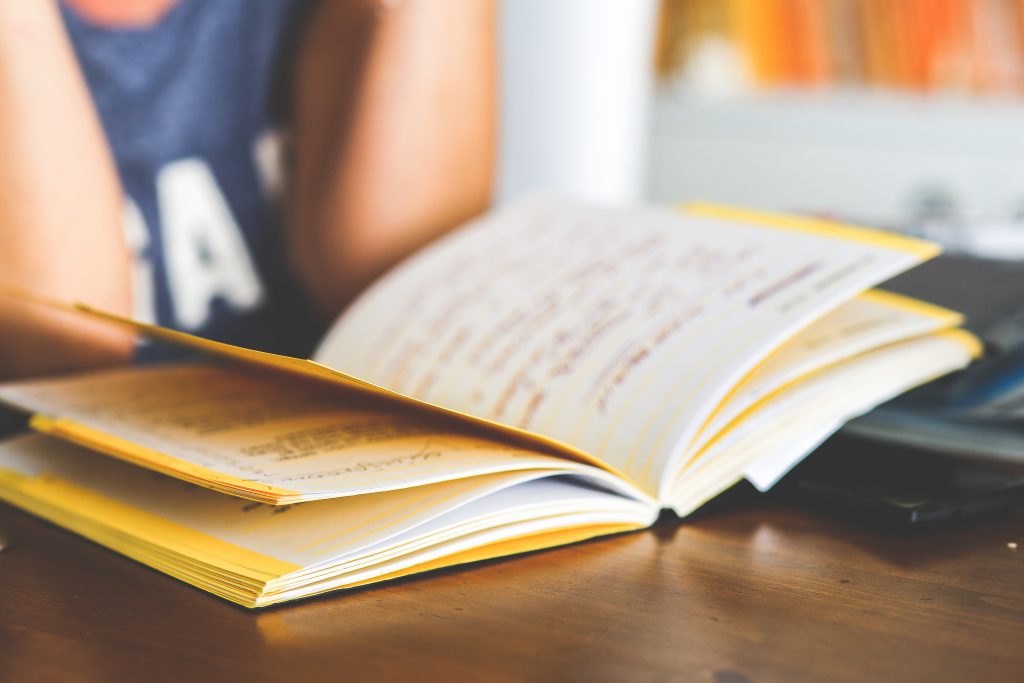Studying at night is convenient? Here is the whole truth!
A great dilemma torments the thoughts of young and old students from the dawn of time: studying at night is convenient?
Or is it much more productive on the day?
In this article we try to give answers and some useful tips.
Studying at night or studying by day? This is the dilemma!
Who has not ever been forced to study late at night, perhaps because of a planning not really effective?
In reality, choosing the “right time” for the study is something to think carefully about, because it could affect our results in a remarkable way.
Just to help you improve your effectiveness in the study, we have tried to solve this doubt once and for all … or almost!
What is the best time to study?
Let’s take the matter straight away: studying at night is not ideal for most students, but it’s not a good alternative for you.
On average, the brain of a young student is fresher and more receptive during the morning hours, after the refreshment – at least we wish you so! – a good night’s sleep, and after a good breakfast.
In short, in the morning is the best time to study something new or review a theme already dealt with.
The afternoon seems perfect to integrate their knowledge with detailed information. So the hours between lunch and dinner are not the most suitable for learning new concepts, but they can be fundamental for developing what has already been learned in the morning.
And at night? Is it possible that studying at night is so inconvenient?
In reality it is not said that nocturnal study is a wrong habit.
Each of us has different learning abilities in the various time slots and different needs for rest.
Many students consider the study in the late evening or even at night found an essential piece for an effective method of study.
Should you study at night? Here are some benefits of the dark hours
After the positive considerations on the diurnal study, we break a lance in favor of the study at night, trying to understand why it may be cheaper than one might think.
In the first place, generally in the evening it is calmer and relaxed, therefore more inclined to cognitive activities also challenging.
Let me explain: the fact of not having immediate urgencies (if not that of going to bed!), Puts you in a condition of inner relaxation excellent for studying. The opposite of the morning, when instead your concentration could work a bit ‘because of the activities that await you in the following hours.
Studying at night gives you the benefits of a quieter and quieter environment. You will be more focused and the chances of being distracted by noises, presences and movements are drastically falling.
Furthermore, studying shortly before sleep allows you to consolidate information, improving the chances of remembering them at the right time!
How to find the right time to study
But how to find the “own” best time to study?
As often happens, the solution is to proceed by trial.
Try to do some night study experiments and the following day reflect on how you found yourself, what were the advantages and the critical points .
- Have you studied more than the day study?
- Do you seem to remember more concepts than those assimilated in the morning or afternoon?
- How many times have you “distracted”?
- Have you still woken up rested or did you study sleep at night?
Once you have drawn up a list of “pros” and “against” of studying at night, repeat this test a couple of times to be sure of the results (you could for example have the impression you have studied better just because you have chosen a simpler matter, or maybe that day you were particularly rested).
Also remember that excess is never the best solution. In other words, try to mix the different approaches, distribute the hours dedicated to the study between morning, afternoon and / or night. Sometimes this mix gives great satisfaction!
What you need to do to study at night?
A simple, but important, note: if you’ve never had the habit of studying at night, surely the first “experiments” will greatly influence your energy levels and effectiveness in the study.
Do not worry, with a few precautions you will avoid the mistakes of many neophytes in the night study, and maybe you could discover a new life for your university career, in case you had lost the desire to study.
But what are the “secrets” for not making a mistake in the studio at night?
First, always try to study by sitting.
Studying on the sofa could make you fall asleep and doing it in bed instead has a double disadvantage: either you fall asleep while studying or you cannot get to sleep when you have finished studying (you have to associate the bed exclusively to sleep and not to other activities).
Better to sit at a table (better stay compared to the kitchen), with an active position on the chair and a straight back: the ideal would be an ergonomic chair, but if you do not have one, a lumbar support will be sufficient to avoid too “relaxed” positions.
It also tries to treat the “acoustic” aspect. Generally studying at night allows us to take advantage of greater silence than the confusion that often characterizes the day.
This does not mean, however, that it is the ideal condition for you! Some students are uncomfortable studying in absolute silence, and others give their best with a background music.
Try studying at night wearing a pair of headphones with music that will accompany you effectively in reading: I suggest you opt for something at low volume, but whose pace is not so slow to induce you to sleep prematurely!
A technique used by many students (especially when they lag behind in the study) is to take exciting substances such as coffee or energy drinks.
My advice is to go very cautious: The effect of these drinks is just to keep you more awake than usual, a condition that in the long run could be counterproductive to your health.
Exaggerating with coffee and the like can lead you in the short term to sleepless nights and a lack of reactivity during the day, and in the long term to an imbalance in the circadian rhythms that regulate the sleep / wake alternation.
In short, go easy, because the negative effects could clearly exceed the positive ones.
A suggestion to “resist” longer during the night study: try to get up once in a while and walk around the room.
Not only will it help you revive the circulation and stretch your bones a bit, but it will actively support you in repetitions, making them less boring.
That’s all? Not exactly. We close this article with 10 rules for night-time study …
10 rules for studying at night
- Find a quiet place to study, but not too “comfortable”: The desk or table of the living room will be fine.
- Put aside any distractions: Smartphones and TVs are two focus catalysts you should do without.
- Do not overdo it with caffeine: The only effect that you will get plenty of coffee is to spend the night like a zombie.
- Eat some fruit: It will help you stay awake, it will give you good support of natural sugars and will give you the necessary energy.
- Drink: Keep hydrated, always keep a nice glass near you.
- Use an alarm clock: It may seem strange to you because your goal is not to fall asleep, but keeping track of the time will allow you to concentrate better on the study, avoiding too many hours of sleep.
- Study methodically: Nocturnal study does not necessarily have to differ from the diurnal one by methods and approaches. Therefore, try to be consistent with the most effective pace for you.
- Study only if you are calm: If you suddenly feel agitated or distracted, stop the study and seek some relaxation. Sometimes it is enough to take a few steps around the house, look out the window and take some deep breaths.
- Take breaks: You do not need to study uninterruptedly for hours, indeed. Subdivide the night study session by carving out a relaxing break every 25-30 minutes.
- In the end … sleep: Your night study session should never last until the next morning. Define in advance the hours to devote to the study and rest enough to not be too tired the next morning.
With this article we tried to clarify what it means to study at night and how to do it at best.
Reaching our optimal state of study, learning to manage personal energy and concentration are in fact skills that will make you jump in quality on your academic path.
Too bad that many forget it …
But a truly effective method of study cannot be based solely on some learning and memorization techniques.
The true effective student must know how to manage all the aspects that influence his study.
Specifically, there are 4 pillars of an advanced study method …
- Motivation: If you do not want to study, there is no study technique that holds.
- Learning: If you do not learn, you cannot remember.
- Memorization: Sometimes it is necessary to know that formula, that proof or that definition to the letter. There are very clever strategies to do it.
- Organization: As mentioned in this article, knowing how to manage one’s energy, study time and planning can make a huge difference in our study.
Too bad that most of the study methods offered to university students barely cover 2 of these pillars.














Post Comment